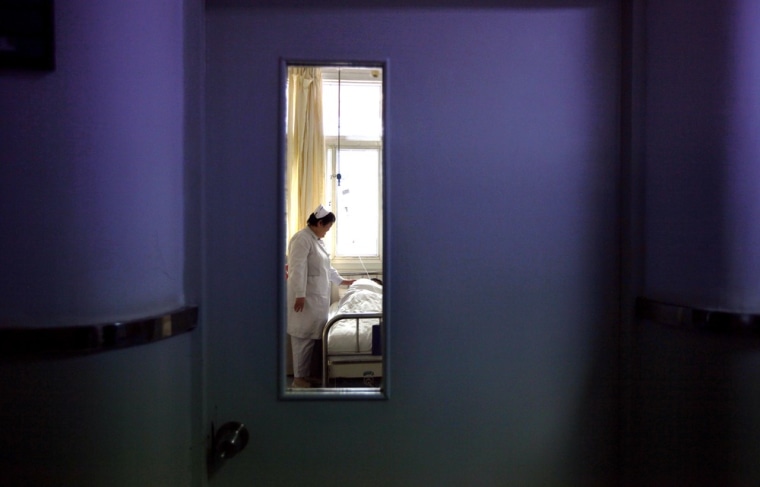The number of new HIV/AIDS cases in China is soaring, state media said on Wednesday, citing health officials, with rates of infections among college students and older men rising.
The Chinese Center for Disease Control and Prevention issued figures showing 48,000 new cases in China in 2011, the official Xinhua news agency said.
Nearly 82 percent of those new cases were transmitted through sexual intercourse, Xinhua said, up from 11.6 percent between 1985 and 2005.
"The distribution of HIV/AIDS cases in our country is now wider and more scattered than ever, posing great difficulties for prevention and control efforts," Wu Zunyou, the director of the Center, said according to Xinhua.
The Center said the number of HIV positive men 60 and above soared from 483 in 2005 to 3,031 in 2010, or 8.9 percent of the total HIV cases in the country.
That same age group accounted for 2,546 of all AIDS cases, or 11 percent. Infections among male college students between the ages of 20 and 24 has also risen, it said.
The number of officially registered HIV carriers and AIDS patients in China is expected to jump from 346,000 to 780,000 by the end of 2011 after the data is updated, Xinhua said.
China's government was initially slow to acknowledge the problem of HIV/AIDS in the 1990s and had sought to cover it up when hundreds of thousands of impoverished farmers in rural Henan province became infected through botched blood-selling schemes.
Beijing has since stepped up the fight, spending more on prevention programs, launching schemes to give universal access to anti-retroviral drugs to contain the disease, and introducing policies to curb discrimination.
But in a country where taboos surrounding sex remain strong and discussion of the topic is largely limited, people with HIV/AIDS say they are often stigmatized.
